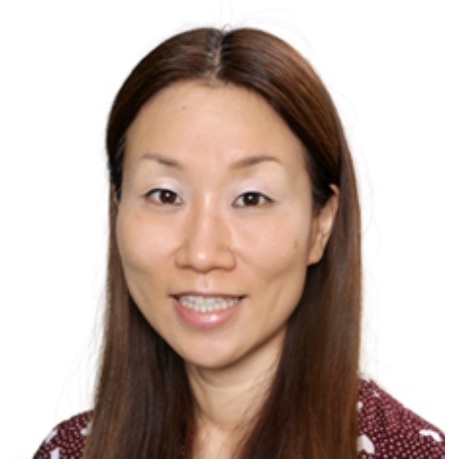In this #coachbetter episode, we have a fantastic panel featuring graduates of our first cohort of Women Who Lead! Maki, Cary, and Terea were all part of our very first global cohort of Women Who Lead. Although each of them came to the program with different professional backgrounds, they were all seeking clarity, confidence, and community around their leadership capacity. In this conversation, we talk about where these women started in terms of their leadership journey, what held them back from moving forward, and how the Women Who Lead experience helped them take the next step professionally.
Subscribe to #coachbetter via your favorite Podcast Player!
Featured Guests



Bonus! Watch the Spotlight Version on YouTube!
SHOW NOTES
Cary, Elementary School Tech Integrator AAS Moscow, always been a team leader
Terea, Business major, looking into law school, started education in elementary school, transitioned to middle school, always thought of myself as a “classroom teacher”, easy to take risks for me as educator, once I saw that experience of risk-taking
Maki, Head of Early Years, Vienna, started in middle school, transitioned to elementary school, moved to literacy coaching, then became a vice principal
How were you feeling before you started Women Who Lead? Where were you at in your career? Where did you want to go?
Maki: Being a teacher is very different than being a coach. Then, being a coach, you start understanding more about the school structure and how leadership works, and then going into a VP and coordinator position, you realize there’s a lot more to it. It has been a vertical learning curve (to the moon) for me. Going from a teacher, to coach, to VP, and now as a Head of Early Years and Primary, it has all been vertical. Every position is so different. And then you start understanding the school structure & how the school works. It’s a learning curve.
Looked at this opportunity as a learning experience. The most important thing I need to think about is “how would I feel as a teacher” – as a leader I want to go back to what would I need / want / appreciate as a teacher. Putting myself in the teacher’s position and recognizing how much control
As teachers we always need time. As a coach, I always had to find this balance of how much time could I ask of them without overwhelming them. Each teacher needs something different, as adult learners, we don’t want to do a top-down approach. I loved Diane Sweeny’s student-centered coaching, starting with data, allow teachers to come to realizations on their own. We need to be patient as a coach to make sure the teacher gets to that point. I remember as a teacher, feeling like I was ok with the results, and not wanting to change anything. Patience as has been one thing I’ve learned as coach. We’re all on a different path to being a better teacher.
Coordinators also have requirements / deadlines, so we can’t really have this patient approach, because there are deadlines. More time constraints, and documentation.
As a VP you deal more with parents, you might also have teachers come to you with problems because they don’t feel comfortable talking to the Principal. You have to be a good listener and understand, more often than not, you can’t change the situation. Then you have to plan strategic conversations.
Terea: Still trying to figure out what I want to be when I grow up. Often I couldn’t see myself in specific leadership roles, but after hearing others talk about their personal journey, I could see myself actually moving into those roles. Hearing these women talk about their leadership in a way that was almost completely contradictory to my own experience made me realize I could actually do it.
I saw myself moving into a coaching role, but there were not that many opportunities to go for a position like that in my school, since it is so small. Through “Tech Ambassador” program, I was a support for teachers. Having the big picture, what is the end goal?
Being able to see different middle leadership positions, even if they were not possible at my own school.
Cary: Sometimes when you’re in a small school, the school doesn’t even realize that there is a potential for certain positions, so seeing that in action, and being able to recognize that those positions could be successful is important for you to be able to advocate for those roles.
Really interested in the Tech Directors, as well as Consultant strands. I wanted to see what different pathways could look like. I knew I didn’t want to be a classroom teacher forever. I started thinking about what things I could do, and tech came along. I wanted to see: What could be, what are the options? The videos gave me a lot of things to think about.
What were you struggling with? What was (and may continue to be) holding you back? Institutional challenges, internal challenges, anything that’s stopping you from getting to the place you want to be.
Cary: Few roadblocks for me, as a woman. The only one I really remember is overcoming tech team’s previous experience with a woman in this position. Focus on building relationships, demonstrate that you can ask a million questions, I’ll never get frustrated. This helps me build trusting relationships, Build relationships with the groups of people you work with, as a coach you end up in this gray area where no one really knows who your line manager is, where you fit in the hierarchy, so you end up working in many different areas of the school and being privy to information before anyone else is, and knowing how to handle those issues.
Having those relationships has helped me avoid many roadblocks. An attitude of how can we work together, and how can we solve this problem together has helped me make sure I’m not headbutting with anyone in my role might get in conflict with.
Terea: Not having the Big L title. As a woman, I felt imposter syndrome about “can I do this?” White men apply for a role with less experience than the female applicants and they get it, and much of that has to do with networking. There’s a stereotypical belief that women are not good at networking, but it’s not something that is available to women, and especially women of color.
Not being given the opportunity to really show what I can do with a position of responsibility. How can i showcase my talents in a way that allows me to be my authentic self, and fits who I am, and how I want to build relationships. Leadership hierarchy can often diminish what students can say. How are we incorporating the voices of students (and therefore teachers). Women have a unique perspective that needs to be heard.
Ready to begin YOUR leadership journey?
Want a preview to Women Who Lead?
Curious about the 70+ women featured in the Certificate Program? Try this FREE sample week to see what learning is like in the program AND meet all of our Women Who Lead.
Meet all of our Women Who Lead in this FREE sample week of the Certificate Program!
In this FREE sample week, you’ll…
- get to see what learning is like inside Women Who Lead.
- meet all of our Women Who Lead and hear about their individual leadership journeys.
- recognize where YOU are in your unique pathway to leadership.
Kim: hearing the stories of 70+ successful leader is so important to change the image in your head of what a leader can be.
Cary: If you can’t see it in your school, you can see it in WWL. It’s never just one, it’s always many. Being able to go into WWL and SEE that it exists, to get out of your bubble.
Maki: I’ve never applied to a job that I don’t think I’ve met the requirements or experiences. It’s so common for females to not apply, when men do. It’s this “wall” that we’re talking about. We need encourage each other, that they should apply anyway. You never know what schools are looking for. What they’re looking for might be what you are, and you don’t know unless you try. Be more of a risk taker and see what happens next.
Fear about leadership comes from prior experience and shared memory. Ask questions about “could we do it like this? How could we do it better?”
When we do try to make changes in a school, and we want support from the head of school, when teachers say “why don’t they understand?”. Usually, it’s because we don’t have enough evidence, so when we collect the evidence, then I can advocate for them at the senior leadership level.
What drew you to Women Who Lead & How did Women Who Lead support your professional growth? What aha moments did you have? Or What stories have really jumped out at you?
Maki: Women don’t apply for jobs until they have all the qualifications. I learned how to reflect on who I am as a woman leader. Would this person have acted differently if I were a male leader? Those kind of reflective moments help me recognize what’s really happening in the moment – are they underestimating me as woman, as an Asian women. Would they look at me differently if I looked differently?
Terea: When I went to apply for jobs, I applied for everything and I felt that I was capable. There’s a big difference between head knowledge and full buy in. I had so much more awareness of what I’m capable of. I know now, I’ve seen 70 women show me what can be done, and I’m not going to take “no” for an answer in this instance. I was able to see myself through the way other people saw them. Why not? Suzanna talking bout being her authentic self. I have all of these traits, being yourself and prioritizing the relationship aspect of
Cary: Solidified for me that I want to move into a leadership position. The F2F meetings helped me realize that I need to, as a leader, remember to advocate for others to represent everyone’s needs whether I fit into that box or not.
Level Up Your Leadership With Women Who Lead
As coaches, we are so fortunate to have so many opportunities to demonstrate “little L” leadership. If you’re feeling like now is the time for you to jump into a formal leadership position. Women Who Lead is the program for you! Women Who Lead is an online certificate program designed for growing and aspiring leaders, featuring the voices and experiences of over 70 successful female leaders from around the world.
Women Who Lead will empower you to articulate your leadership potential so you can overcome the many challenges faced by women seeking leadership positions in the field of education.
We facilitate only one global cohort each year, so we can create connected, collaborative, and community-driven global cohorts. Now is your chance to level up your leadership and reach for your dream job!
Find out more here: https://edurolearning.com/women/







Recent Comments